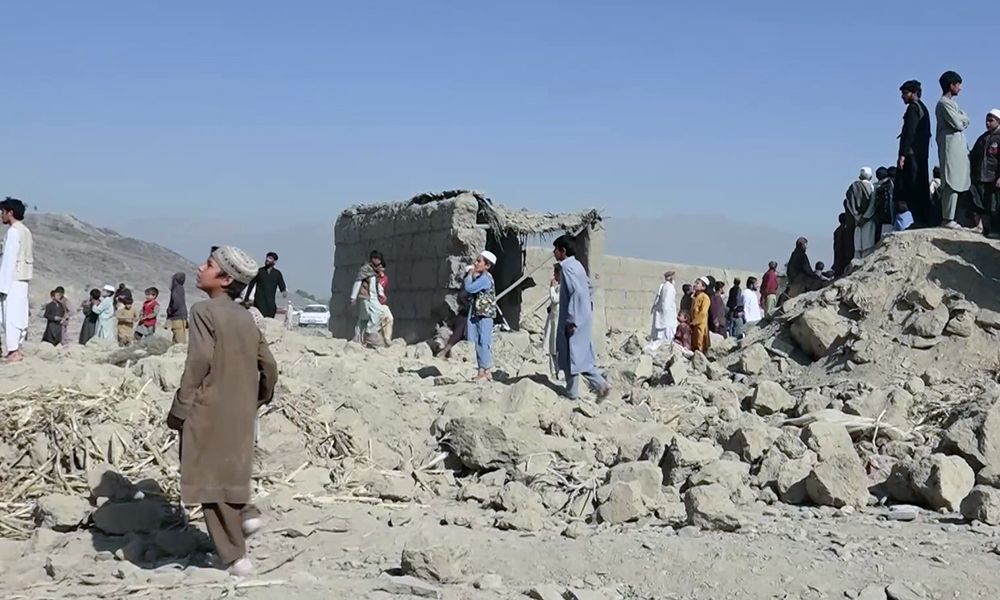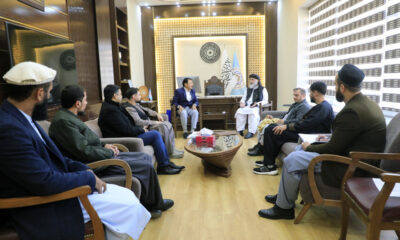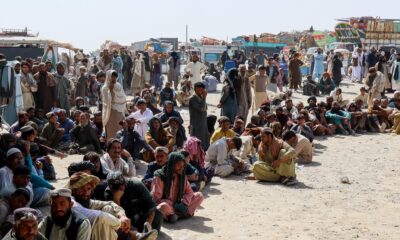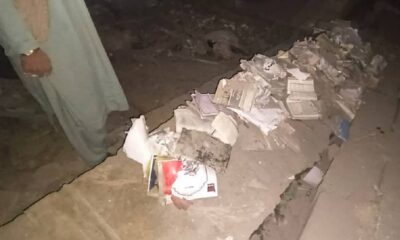Latest News
Rampant sexual harassment remains biggest challenge for Afghan female journalists

The Afghan Journalists Safety Committee (AJSC) in its recent survey said that more than 70 percent of Afghan women journalists are under sexual harassment during their jobs.
The survey carried out in seven provinces of Afghanistan in Central, South, East and North zones from 100 Afghan women journalists.
“Generally, 69 percent of the participants in the survey said that they had been sexually harassed during their jobs and 59 percent of them sexually harassed by their colleagues,” Najibullah, head of AJSC said.
According to AJSC findings, most of the families in south and eastern zones of Afghanistan prevent their daughters to work in media outlets.
More and more women are entering journalism, a profession long reserved for men. Some have chosen to focus on investigative reporting, covering human rights violations, corruption or other subjects that are off-limits in their society. Like their male colleagues, they are the targets of threats, intimidation, physical violence and even murder because of their reporting.
But because they are women, the harassment often takes specific, gender-based forms, including sexual smears, violence of a sexual nature and threats against their families. The very fact of being a woman journalist is regarded in some societies as a “violation of social norms” and may lead to reprisals.
For women journalists, it is also difficult to have access to accurate resources and information and most of the time government officials, including the local people, deny trust to the woman journalists and do not provide any information.
Religious leaders in the mosques are another group women journalists need to have access to. These leaders do not trust women journalists and refuse to provide any information.
In Afghanistan’s male-dominated society, women journalists are forced to confront cultural taboos on a daily basis, usually starting at home. Rigid inequality between men and women is widely assumed and reinforced. In many places, a woman’s presence outside the home is considered inappropriate. In this context, it comes as no surprise that most families refuse to allow female relatives to work in the media. The security situation in the country has added another set of restrictions on what women can and cannot do.

Latest News
IEA rejects Russia’s claims of foreign militants in Afghanistan
He further called on Russian authorities to reassess their understanding of the situation in Afghanistan and to update their reports based on objective facts on the ground.

The Islamic Emirate of Afghanistan (IEA) has strongly rejected recent claims by Russia regarding the presence of international terrorist groups inside Afghanistan, calling the allegations unfounded and based on inaccurate information.
Speaking on the issue, Zabihullah Mujahid, the spokesperson of the Islamic Emirate, said Afghanistan is fully secure and no foreign armed groups are operating within the country.
He stressed that the entire territory of Afghanistan is under a single authority, leaving no space for external groups to carry out activities.
“We regret that such claims are made from sources in Russia,” Mujahid said, adding that these allegations date back to the past, including the period of the U.S. occupation, and have no basis in current realities. “We categorically reject these assertions.”
He further called on Russian authorities to reassess their understanding of the situation in Afghanistan and to update their reports based on objective facts on the ground.
Latest News
Escalating violence in Pashtun regions during Ramadan raises concerns
He described these incidents as grave violations of international law and acts that have deepened fears among affected communities.

Amid the holy month of Ramadan, violence has continued in several Pashtun areas, raising serious concerns among local communities.
In a post in X, Manzoor Ahmad Pashteen, the founder and head of Pashtun Tahafuz Movement, noted that in Tirah, four Pashtun civilians were reportedly killed and six others injured during operations carried out by the Pakistani army. Protests that followed in Orakzai were also met with force, leaving four more individuals seeking peace and justice injured.
In Afghanistan’s Behsud district, 17 civilians, including women and children, were reportedly killed in airstrikes attributed to Pakistani forces, he stated.
He described these incidents as grave violations of international law and acts that have deepened fears among affected communities.
In recent days, additional casualties have been reported in Rozmak, Shawal (North Waziristan), Mubarak Shahi village (Mir Ali), Speen Wam, Abakhel village, Dosali, Takhte Khel (Lakki Marwat), Azam Warsak (South Waziristan), Bajaur, and Bannu, where clashes between security forces and armed groups have resulted in deaths and injuries among civilians, Pashteen said.
He stated that the ongoing violence reflects longstanding grievances in Pashtun regions. The Pashtun Tahafuz Movement (PTM) has stated that it will continue to oppose what it describes as injustices against Pashtun communities and will stand in solidarity with those affected.
Latest News
UNAMA reports civilian casualties from Pakistani airstrikes in Afghanistan
UNAMA urged all parties to end hostilities, protect civilians, and uphold international law principles of distinction, proportionality, and precaution to prevent further civilian harm.

The United Nations Assistance Mission in Afghanistan (UNAMA) has confirmed credible reports of civilian casualties following overnight Pakistani airstrikes inside Afghanistan on 21–22 February.
Airstrikes in Behsud and Khogyani districts of Nangarhar province, carried out between approximately 23:45 on 21 February and 00:15 on 22 February, have reportedly killed at least 13 civilians and injured seven others, including women and children.
Pakistani forces also struck Barmal and Urgun districts in Paktika province.
In Barmal’s Marghai area, an airstrike on 21 February around 23:15 hit a madrassa and partially damaged a nearby mosque.
In Urgun’s Dahna area, an airstrike at approximately 23:30 partially destroyed a vacant private residence. No civilian casualties have been reported from these strikes.
UNAMA urged all parties to end hostilities, protect civilians, and uphold international law principles of distinction, proportionality, and precaution to prevent further civilian harm.
-

 Latest News4 days ago
Latest News4 days agoAfghanistan welcomes investment and technology partnerships with India
-

 Sport5 days ago
Sport5 days agoAfghan Peaks founder climbs Aconcagua to promote Afghanistan’s mountain potential
-

 Latest News4 days ago
Latest News4 days agoIndian customs seize Chinese walnuts falsely declared as Afghan
-

 Business5 days ago
Business5 days agoPakistan allows re-export of stranded Afghan transit cargo
-

 Latest News4 days ago
Latest News4 days agoPakistan’s Punjab to send home 20 more Afghans in repatriation drive
-

 Latest News5 days ago
Latest News5 days agoPakistan signals possible air strikes as Kabul releases Pakistani soldiers in goodwill move
-

 Latest News3 days ago
Latest News3 days agoMoldova bans Afghan airlines over safety concerns
-

 Latest News2 days ago
Latest News2 days agoAfghanistan vows retaliation after Pakistan launches air strikes














